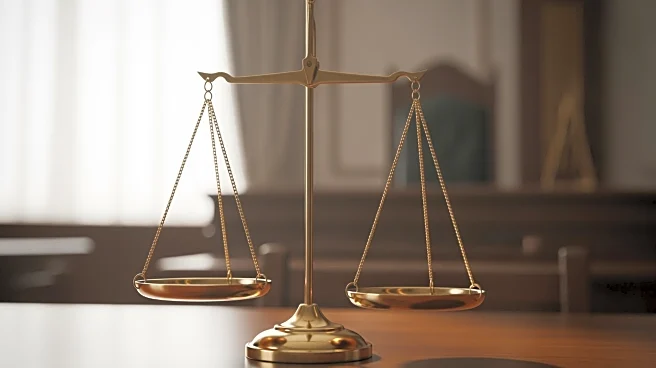What's Happening?
A federal judge has criticized the Department of Justice's handling of the indictment against former FBI Director James Comey. The indictment, which alleges Comey lied to Congress in 2020, has been described
as vague and problematic. Judge William Fitzpatrick expressed concerns over the government's conduct, stating it felt like an 'indict first, investigate second' situation. The judge has ordered the DOJ to hand over all grand jury materials related to the investigations by a specific deadline, reflecting urgency due to the approaching trial date.
Why It's Important?
The criticism from the judge highlights potential issues within the DOJ's approach to prosecuting high-profile cases, particularly those involving political figures. The case against Comey, a known political adversary of President Trump, raises questions about the impartiality and motivations behind the indictment. The judge's remarks could influence public perception of the DOJ's integrity and its ability to conduct fair investigations, potentially impacting future cases involving political figures.
What's Next?
The DOJ is required to comply with the judge's order to provide grand jury materials, which could lead to further scrutiny of the case's foundation. The upcoming trial date adds pressure on the DOJ to address the judge's concerns and ensure the case is handled appropriately. The outcome of this case may set a precedent for how similar cases are managed, particularly those involving political figures.
Beyond the Headlines
The case against Comey underscores the tension between political interests and judicial processes. The judge's criticism may prompt discussions on the ethical responsibilities of the DOJ and the potential influence of political agendas on legal proceedings. This situation could lead to calls for reforms in how politically sensitive cases are prosecuted.












